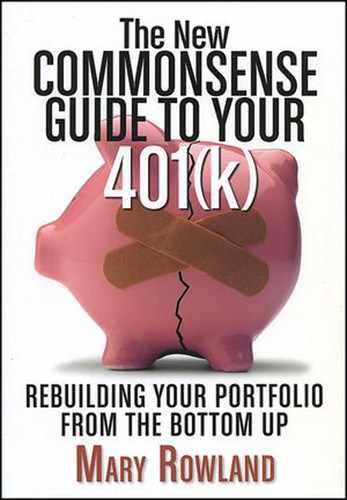THE SOCIAL SECURITY SYSTEM is in deep trouble. Good financial advisors are telling clients to start viewing Social Security as a subsidy for lower-income individuals rather than a benefit that we will all collect. One planner tells me: "You may get something, but you probably won't get it until age seventy, and it won't be worth what you think it will be worth."
Social Security income has never been adequate to provide for a comfortable retirement. But for many of today's retirees, it provides a reasonable base. Even that is changing. And it will change rapidly as the baby boomers begin to retire this year. If the system were to continue as it is today, it is expected to start paying out more each year in benefits than it collects in taxes after 2012. Sure there are economists and other "experts" who still argue that Social Security is just bent a little bit and that it will right itself. That isn't going to happen. So don't you be in the group counting on this bubble to keep growing.
Changing demographics are straining the system. When the first Social Security checks were mailed out in 1937, more than forty workers were paying withholding taxes to support each retiree. Today just three workers support each retiree. And that will drop to two workers per retiree by the year 2030.
Americans are living much longer, too. When the system was set up in the 1930s, few people lived long enough to collect Social Security. In contrast, retirees today may have twenty to thirty years or more ahead of them. As a result retirees collect much more than they paid into the system, putting a bigger burden on working people.
Bandages have been applied to the system. For instance, normal retirement age will increase gradually to age sixty-seven— and then perhaps beyond. Higher-income retirees pay tax on benefits, another trend that is certain to accelerate. This remains clear: middle and upper income taxpayers will get a haircut on their Social Security benefits before we get much further into the twenty-first century.
Still, the government's largest and most popular program is unlikely to disappear. Neither political party wants to take the blame for cutting benefits and/or increasing taxes. The Bush Administration pushed a plan to privatize the system. After the 2008–2009 market crash, critics of the Bush plan pointed out that things would have been even worse had the system been privatized. The benefit forecast has grown even more grim since then. After six months in office, the Obama Administration has not yet proposed a plan.
Possible solutions over the past ten years have included investing in the stock market (all the money is now invested in government bonds) as well as cutting benefits and hiking taxes. But that was before the market crashes of 2000 and 2008. Even though investors seem to be going back into the market in the fourth quarter of 2009, I doubt that policy makers will have the courage to put more money at risk.
Will "experts" feel the same way about "privatizing" Social Security now? About investing some of the money in the stock market? How will the rest of us feel? The years 2000 to 2003 and more especially 2008 to 2009 have changed our thinking (we hope) about financial and economic and employment questions. Few of us feel secure in our investments in our homes, in our jobs, or in the stock market. Nor do we feel certain about the future of Social Security. The only certain thing is that Social Security needs to be reformed. In the meantime, keep track of your earnings and benefits.
